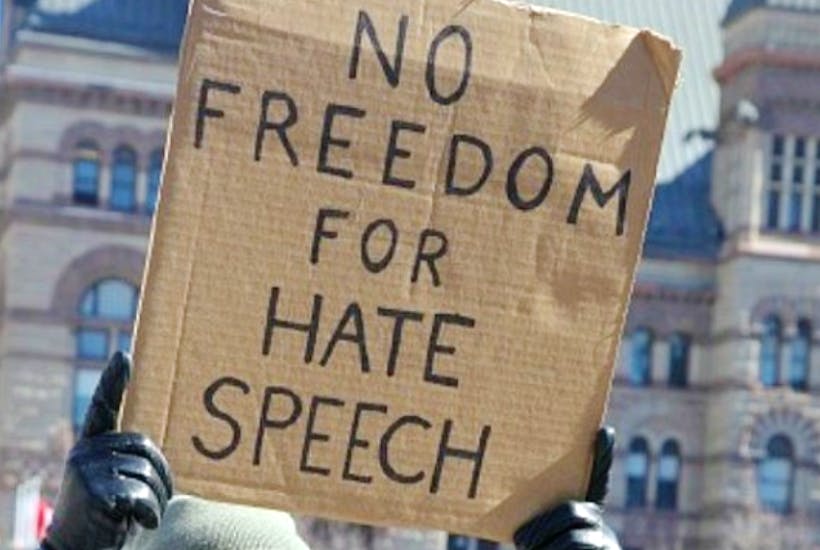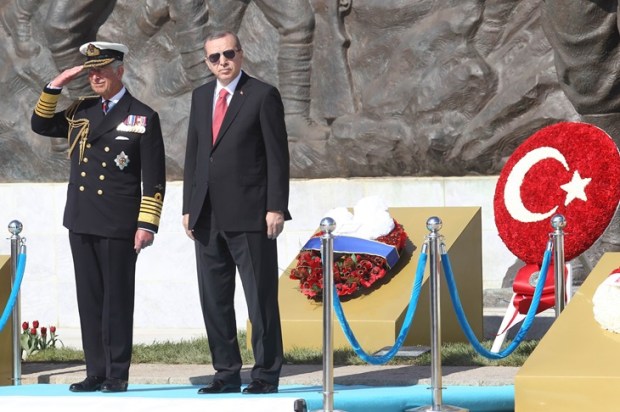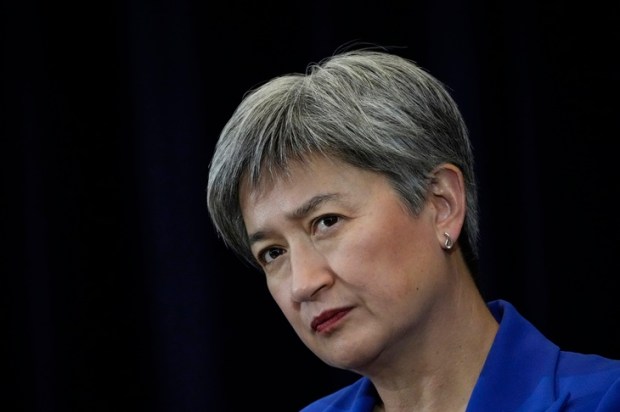Imprisoned Saudi writer Raif bin Muhammad Badawi was on my mind this week, as he often is when questions of free speech arise.
He was arrested in 2012 and faced the death penalty over charges of apostasy. Lucky for him, he was only sentenced to a decade in prison, torture, 1000 lashes and a fine. The then 25-year-old husband and father of three dared question why Saudi women needed a male guardian to walk down the street — or indeed why all Saudis were required to believe in Islam — on a website he set up to foster a discussion of liberalism.
Amnesty International, for what it’s worth, determined he was “a prisoner of conscience, detained solely for peacefully exercising his right to freedom of expression”.
I doubt senior journalist for The West Australia Kate Emery has heard of Raif Badawi. But I do wonder what he would make of her latest column as he sits rotting in a Saudi prison.
Titled Apologies to Voltaire but some views deserve to be silenced, Emery’s piece sets out the case for censorship of “bad views”, in the context of the Western Australian Labor government’s attempt to ban Christians hiring taxpayer-owned venues and theatres.
She took aim at the Australian Christian Lobby’s Martin Iles, who I would bet has a greater reach into the Australian heartland than her newspaper.
Emery explained that some believe he should be permitted to air his “bad views and be defeated in the marketplace of ideas”.
“What frustrates me about this logic is the implication that there is no point at which someone’s views become so offensive they deserve to be silenced,” she wrote.
“Call me an enemy of free speech if you like but some people deserve to be cancelled.”
Now that Emery mentions it, yes, here indeed is a journalist who is also an enemy of free speech. What are the chances?
Free speech ends at a point somewhere between Martin Iles and Adolf Hitler, she goes on to argue. You have to draw the line somewhere, right? Iles is no Hitler, Emery concedes. But the ACL boss foments hate with his “anti-gay, anti-trans content”, just as the Nazi dictator “rather famously used his platform to mobilise anti-Jewish sentiment”.
Why on earth didn’t the Dummköpfe running the Weimar Republic think of throwing Hitler into Landsberg prison? Surely that would’ve quelled the unrest he and his brownshirts were stirring up among the Volksgemeinschaft.
If only they’d thought of cancelling him.
Not only is Emery’s piece historically illiterate. Its tortuous logic is fatally flawed. How are we supposed to know which ideas are worth banning if we can’t discuss them? Maybe it would be enough to ban most people discussing them. Perhaps a Council of Guardians, or a Council of Senior Scholars, or a Politburo could help? Perhaps we need our own Enabling Act to assist the government clear a path for these decisions?
British commentator Katie Hopkins is also cited by Emery as an example of someone who should be cancelled. But she never was cancelled. She was deported for flouting Australian law.
Emery’s piece was oddly silent on perhaps the most worrying aspect of Labor’s venue hire crackdown, which was aimed at groups attracting the ire of the Chinese Communist Party. Under Labor’s policy, those who identified with “countries whose political status is unclear or in dispute” were also barred from taxpayer-owned theatres.
Does Emery believe groups concerned about Beijing’s treatment of Tibet or the incarceration and enslavement of Uighurs in Xinjiang should also be cancelled?
Groups such as these were banned after WA’s Labor government apologised to the CCP when a dance troupe raised a Taiwanese flag at Perth’s State Theatre Centre.
Of course, no one in Australia — not even Kate Emery — is seriously arguing Christians should be imprisoned or tortured over their beliefs, which according to her are merely “out of step with the majority community view”.
So the fact someone like Raif Badawi has been jailed and whipped somewhere in the world for expressing his opinions need not give us pause just yet.
But at least he’s spared the indignity of reading elitist Western journalists use their historically unparalleled freedom of speech to argue why others shouldn’t have it.
Got something to add? Join the discussion and comment below.
Get 10 issues for just $10
Subscribe to The Spectator Australia today for the next 10 magazine issues, plus full online access, for just $10.

























Comments
Don't miss out
Join the conversation with other Spectator Australia readers. Subscribe to leave a comment.
SUBSCRIBEAlready a subscriber? Log in